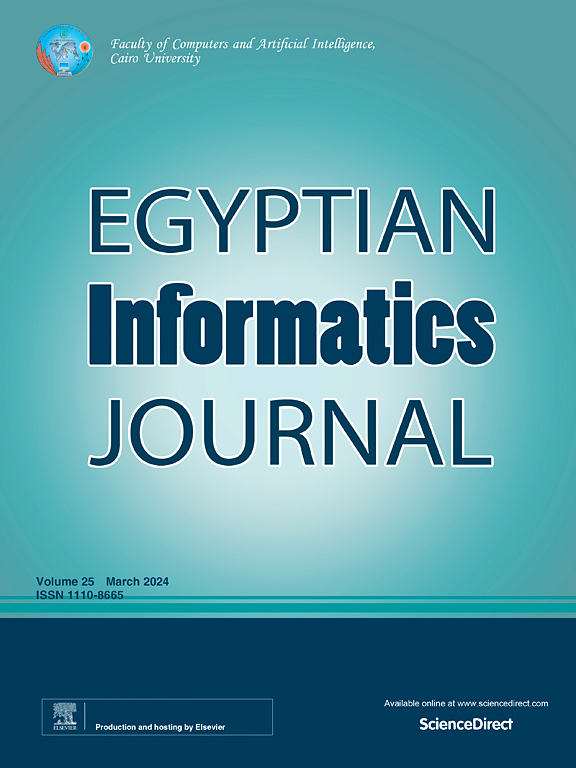Improving and simulating urban landscape image recognition using combination optimization and fuzzy K-means algorithm
IF 4.3
3区 计算机科学
Q1 COMPUTER SCIENCE, ARTIFICIAL INTELLIGENCE
引用次数: 0
Abstract
Modern image recognition systems are pivotal in enhancing urban landscapes to support sustainable development and improving urban planning performance in a dynamic environment. Previous research focused on street-view panoramas is emerging as a new information source for urban studies due to the rapid advancements in image processing technology. However, challenges such as accuracy, feature extraction, uncertainty management, and a lack of approach integration remain unresolved. The research introduces a novel method combining a Combination Optimization (CO) strategy with a Fuzzy K-Means (FKM) clustering algorithm to address the challenges and achieve superior urban data analysis performance. CO specifically integrates the genetic algorithm (GA) to efficiently search for the optimal subset of features that maximize the performance of a convolutional neural network (CNN) based on extracted features. The Particle Swarm Optimization (PSO) aims to efficiently find the optimal feature subset by simulating the social behavior of particles, where each particle represents a feature combination to explore and exploit the solution space. The FKM allows for the clustering of mixed-use urban zones with greater accuracy, identifying complex patterns, and relationships that earlier research methods often overlook. It has proven highly effective in detecting and classifying mixed-use urban zones, delivering greater accuracy in recognition tasks than traditional clustering algorithms.
基于组合优化和模糊k -均值算法的城市景观图像识别改进与仿真
现代图像识别系统在增强城市景观以支持可持续发展和改善动态环境中的城市规划绩效方面发挥着关键作用。随着图像处理技术的飞速发展,街景全景图正成为城市研究的一种新的信息来源。然而,诸如准确性、特征提取、不确定性管理和缺乏方法集成等挑战仍然没有解决。该研究提出了一种结合组合优化(CO)策略和模糊k -均值(FKM)聚类算法的新方法,以解决这些挑战并实现卓越的城市数据分析性能。CO特别集成了遗传算法(GA),以基于提取的特征有效地搜索使卷积神经网络(CNN)性能最大化的最优特征子集。粒子群算法(Particle Swarm Optimization, PSO)旨在通过模拟粒子的社会行为,有效地找到最优的特征子集,其中每个粒子代表一个特征组合,以探索和利用解空间。FKM允许以更高的准确性聚集混合用途的城市区域,识别复杂的模式,以及早期研究方法经常忽略的关系。事实证明,它在检测和分类混合用途城市区域方面非常有效,在识别任务中提供比传统聚类算法更高的准确性。
本文章由计算机程序翻译,如有差异,请以英文原文为准。
求助全文
约1分钟内获得全文
求助全文
来源期刊

Egyptian Informatics Journal
Decision Sciences-Management Science and Operations Research
CiteScore
11.10
自引率
1.90%
发文量
59
审稿时长
110 days
期刊介绍:
The Egyptian Informatics Journal is published by the Faculty of Computers and Artificial Intelligence, Cairo University. This Journal provides a forum for the state-of-the-art research and development in the fields of computing, including computer sciences, information technologies, information systems, operations research and decision support. Innovative and not-previously-published work in subjects covered by the Journal is encouraged to be submitted, whether from academic, research or commercial sources.
 求助内容:
求助内容: 应助结果提醒方式:
应助结果提醒方式:


